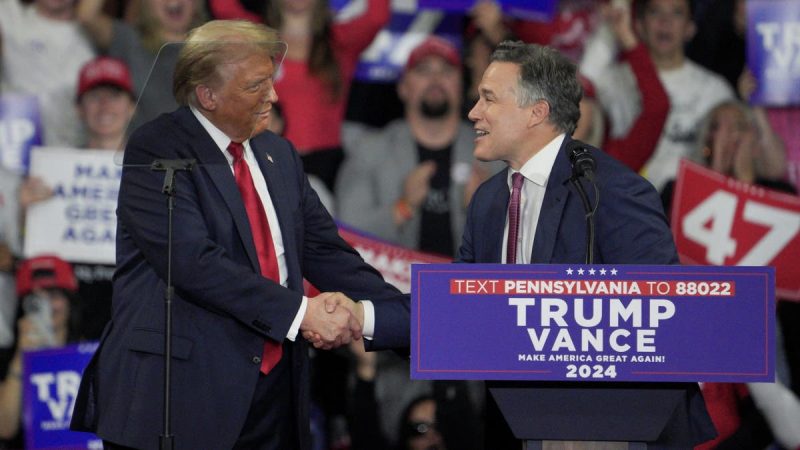In the divisive arena of American politics, the upcoming Senate elections are poised to be a crucial battleground. As the Republican Party aims to retain control of the Senate, President Trump’s leadership and the party’s momentum are at the forefront of the contentious race. With the upcoming elections fast approaching, the GOP finds itself in a pivotal position, seeking to maintain dominance in the Senate and preserve its policy agenda.
Trump’s bold and unconventional style of leadership has been a defining factor in galvanizing his base and invigorating the Republican Party. Despite facing criticism and opposition, the president’s unapologetic approach and focus on policies such as tax cuts, deregulation, and a tough stance on immigration have resonated with many conservative voters. Trump’s ability to connect with his supporters on a personal level, often bypassing traditional political channels through social media and rallies, has allowed him to maintain a loyal base of supporters and allies within the GOP.
The Republican Party’s momentum in the Senate race can be attributed to several key factors. The party’s success in confirming conservative judges to the federal bench, including three Supreme Court justices nominated by President Trump, has been a critical achievement that has energized Republican voters. Additionally, the successful passage of the Tax Cuts and Jobs Act in 2017, which promised lower taxes for individuals and businesses, has bolstered the GOP’s economic platform and appealed to voters concerned about their financial well-being.
The GOP’s advantage in the Senate race is further reinforced by the party’s strong fundraising efforts and organizational infrastructure. Republican candidates have been able to mobilize financial resources and grassroots support to effectively campaign in crucial battleground states. The Republican National Committee’s data-driven voter outreach strategy and effective use of digital advertising have helped to target key demographics and maximize voter turnout, giving the GOP an edge in competitive races.
As the Senate elections approach, the Republican Party faces both challenges and opportunities. The ongoing coronavirus pandemic, economic uncertainties, and social unrest across the country present potential obstacles that could sway undecided voters and shift the political landscape. However, the GOP’s message of law and order, economic prosperity, and a commitment to conservative values remains a powerful rallying cry for many Republican supporters.
In conclusion, as the Senate race unfolds, the Republican Party’s momentum and President Trump’s leadership will play a crucial role in shaping the outcome of the elections. With the Senate majority hanging in the balance, the GOP’s ability to energize its base, mobilize resources, and effectively communicate its message will be instrumental in determining the future direction of American politics. As voters head to the polls, the stakes are high, and the outcome of the Senate elections will have far-reaching implications for the nation’s governance and policy priorities.

